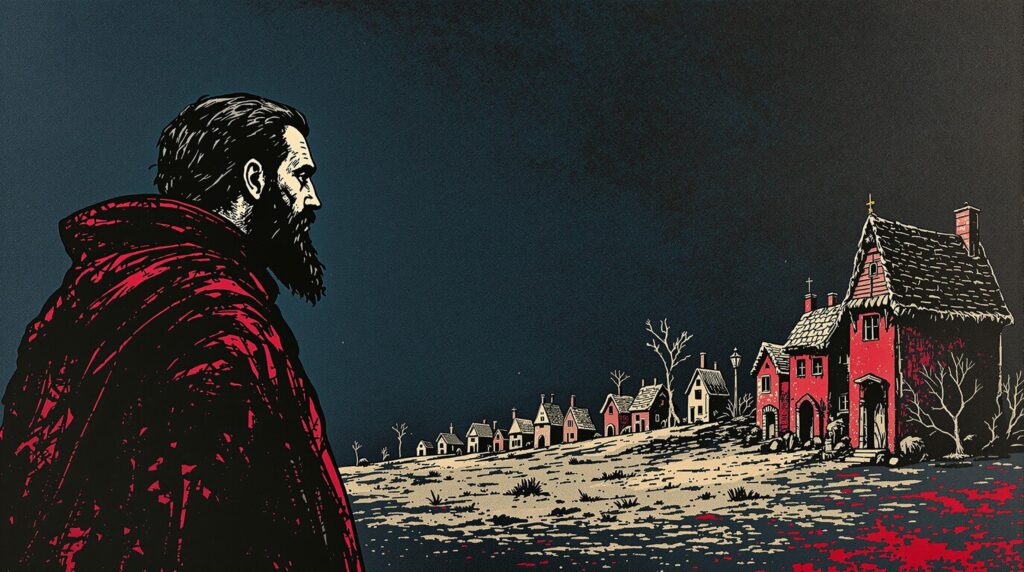In this chapter, Zarathustra returns to the mainland after his journey at sea. Rather than heading directly back to his mountain abode and cave, he wanders through inhabited areas, exploring and observing the state of humanity. His intention is to discern whether mankind has grown greater or diminished during his absence.
As Zarathustra traverses the land, he encounters a row of new houses that strike him as emblematic of a diminished human spirit. He marvels at their smallness and simplicity, questioning whether a great soul could have constructed them. The houses appear to him as if made for delicate creatures like silk spiders or for those who indulge in self-gratification. He remarks on the low doorways, noting that a person of his stature must stoop to enter.

What do these houses mean? Truly, no great soul put them up in its likeness! Did perhaps a silly child take them out of its toy box? Might another child put them back into the box!
Profoundly affected by these observations, Zarathustra speaks about the “verkleinernde Tugend”, the diminishing or dwarfing virtue. He notes that the people he encounters are resentful of him because he does not envy their modest virtues, which are suited for “small people”. They react with hostility, likening him to a foreign rooster that the hens peck at, yet he remains unoffended by their behavior. The townsfolk discuss him around their firesides without truly understanding him, creating noise that he compares to a cloak covering his thoughts. When he speaks, they cough, and they fail to grasp the joy that propels his words.
Zarathustra perceives that the people’s desire for comfort leads them to value modest virtues, which require little effort and ambition. Their progress is halting and impeded, akin to limping, and they become obstacles to those who are swift. Some walk forward while looking backward, creating a dissonance between their actions and their focus. He criticizes their lack of authenticity, noting that while a few are genuine, most are poor actors, either unaware or unwilling participants in their own deception.
He observes a deficiency of true masculinity among the men, leading the women to adopt masculine traits in an effort to compensate. Furthermore, he condemns the hypocrisy of those in positions of authority who feign the virtues of servitude.
Zarathustra reflects on the superficial goodness and justice prevalent among the people, which he attributes to weakness rather than genuine virtue. Their interactions are polite but lack substance. They prioritize avoiding harm over pursuing greatness, a mentality he regards as cowardice masquerading as virtue.
He critiques their avoidance of strong desires and ambitions, urging them to overcome their half-hearted wills and to commit fully, whether in action or in deliberate inaction. He challenges them to love themselves deeply, with both great love and great contempt, before extending that love to others. Zarathustra identifies himself as a forerunner and a herald among these people, akin to a rooster crowing before dawn in dark alleys, signaling a forthcoming change.
Concluding his discourse, Zarathustra foretells that the people will continue to diminish, becoming like dry grass longing not for water but for fire. He anticipates a pivotal moment, the “great noon”, representing a turning point for humanity.
